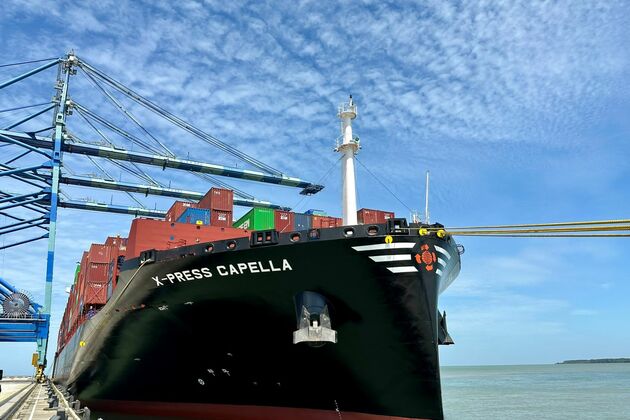By PortEconomics member and Port Strategy Analyst, Peter de Langen
X-Press Feeders has recently decided to deploy green methanol-powered ships on its feeder network in Europe, with Evergreen committing to using X-Press Feeders services. The ships will operate out of and receive methanol in Rotterdam and serve feeder markets in Scandinavia -with plans to expand the green feeder services to other destinations in Europe once new methanol-powered vessels are delivered to X-press. This decision is a first in container shipping and shows the traction of reducing the footprint of container shipping. A few aspects of the decision deserve attention.
First, the fact that the ships will be deployed serving Scandinavia & the Baltic, demonstrates again that this region is the center of gravity of clean fuel initiatives, probably because of a mix of policies, the presence of innovative companies and cargo owners willing to pay for green shipping.
Second, while one could have thought that green feeders most likely would be first deployed by the large shipping lines with dedicated feeder vessels, that has not been the case. That is surprising since common feeder companies do not have direct contracts with beneficial cargo owners. X-Press feeders provide some information that suggests that the additional costs of using the green fuel between Rotterdam and the Baltic are around 100 euro per container, while the CO2 emissions are reduced with about 268kg per container. How that bill is split between X-Press feeders, Evergreen, beneficial cargo owners and potentially others (like port authorities) is not disclosed.
Finally, the move involves X-Press and Evergreen as first movers, but also OCI Global, which will provide the green methanol, as well as Rotterdam as a port. The fuel transition created a whole new ‘opportunity space’ for companies and ports to occupy. OCI Global, as a relative newcomer has managed to develop a strong position as fuel supplier, while Rotterdam, as an established bunker port has managed to transition ahead of others as bunker port for green fuels. For all these first movers, let’s hope they can turn being first into commercial success.
First published @PortStrategy












